Featured
Maldives travel associations to feed poor in coronavirus shelters

Travel associations in Maldives have come together to help the needy that have been disproportionately affected by the global coronavirus pandemic.
With the holy month of Ramadan beginning this Friday, hundreds of individuals are left without shelter and a consistent source of sustenance. Given the gravity of the pandemic and its severity economic and financial impact on the Maldives, many are at risk of malnutrition, disease and starvation without access to food and medical supplies.
The Maldives Association of Travel Agents and Tour Operators (MATATO) and the National Boating Association of Maldives (NBAM) said Thursday they are mobilising their members to provide food to locals and expatriates who are being sheltered by the government in capital Male and its satellite town of Hulhumale.
The associations said a kitchen has been identified from Male with support from Salsa Catering, and another kitchen will be chosen from Hulhumale.
These kitchens will be used to prepare and provide meals to at least 500 individuals in government-run shelters for the next 30 days, they said.
“The meal packs will be delivered to individuals in shelters with support from the authorities,” a joint statement read.
Coca-Cola Maldives is already supporting the initiative, and MATATO and NBAM are hoping that others will join the scheme.
MATATO and NBAM are non-profits representing the majority of local travel agents and liveaboards. They advocate for greater benefit of tourism to local communities and local businesses.
The associations have been in constant dialogue with relevant authorities regarding the challenges pose by the global pandemic, in order to find solutions together.
The coronavirus outbreak has hit the Maldivian economy hard, as travel restrictions and other preventive measures affect the country’s lucrative tourism industry, which contributes the bulk of the island nation’s state revenue and foreign reserves.
Before the pandemic, the government had been bullish about tourism prospects, targeting two million, high-spending holidaymakers this year after last year’s record 1.7 million.
However, tourist arrivals saw a year-over-year decline of 22.8 per cent in the first 10 days of March. Officials say the number of tourist arrivals to the Maldives could drop by half in 2020.
All international airlines have suspended scheduled operations to the Maldives, as the island nation enforced a blanket suspension of on-arrival visa in late March in a bid to combat the spread of the novel coronavirus.
Even before the visa suspension, the Maldives had closed its borders to arrivals from some of the worst-hit countries, including mainland China, Italy, Bangladesh, Iran, Spain, the United Kingdom, Malaysia and Sri Lanka. Visitors from three regions of Germany (Bavaria, North Rhine-Westphalia and Baden-Württemberg), two regions of France (Île-de-France and Grand Est) and two regions of South Korea were also banned from entering the country.
All direct flights to and from China, Italy, South Korea and Iran were also cancelled.
Cruise ships and foreign yachts were also banned from docking at any of the country’s ports.
With arrival numbers falling and the visa suspension in effect, several resorts across the Maldives had been closed.
Tourism has been the bedrock of the Maldives’ economic success. The $5 billion-dollar economy grew by 6.7 per cent in 2018 with tourism generating 60 per cent of foreign income.
However, the government is at present projecting a possible 13 per cent economic contraction this year — an estimated $778 million hit.
The Maldives has announced an MVR 2.5 billion stimulus plan, which includes MVR 1.55 billion ($100 million) in emergency loans for businesses to meet short-term working capital needs.
In addition to the emergency financing, the government’s stimulus plan is complemented by a package of financial measures, including a six-month moratorium on principal and interest repayments for personal, business and housing loans sanctioned by commercial banks.
The government is also subsidising utility bills in March and April.
Those that lose jobs due to the coronavirus pandemic will also be paid unemployment benefit for a period of three months.
Meanwhile, the central bank has announced a $150 million facility for banks to ensure healthy foreign currency reserves.
The facility is arranged through a $400 million stand-by currency swap signed by the Maldives Monetary Authority (MMA) and Reserve Bank of India (RBI) last year.
If required, minimum reserve requirement of banks will also be slashed from 10 to five per cent to allow banks to increase lending.
On March 8, Maldives reported its first cases of the novel coronavirus, as two hotel employees tested positive for Covid-19 at a luxury resort in the archipelago.
Eighteen more cases — all foreigners working or staying resorts and liveaboard vessels except five Maldivians who had returned from abroad — were later identified.
A six-case cluster of locals, detected in capital Male last week, confirmed community transmission of the coronavirus. Several more clusters have since been identified, bringing the total number of confirmed case in the Maldives to 86.
No deaths have been reported and 16 have made full recoveries.
The Maldives announced a state of public health emergency on March 12, the first such declaration under a recent public health protection law.
The public health emergency declaration has allowed the government to introduce a series of unprecedented restrictive and social distancing measures, including stay-at-home orders in capital Male and its suburbs, a ban on inter-island transport and public gatherings across the country, and a nationwide closing of government offices, schools, colleges and universities.
Non-essential services and public places in the capital such as gyms, cinemas and parks have also been shut.
Restaurants and cafes in the capital have been asked to stop dine-in service and switch to takeaway and delivery.
A nationwide shutdown of all guesthouses, city hotels and spa facilities located on inhabited islands is also in effect.
Featured
Ancient banyan tree anchors spiritual experiences at Machchafushi Island Resort
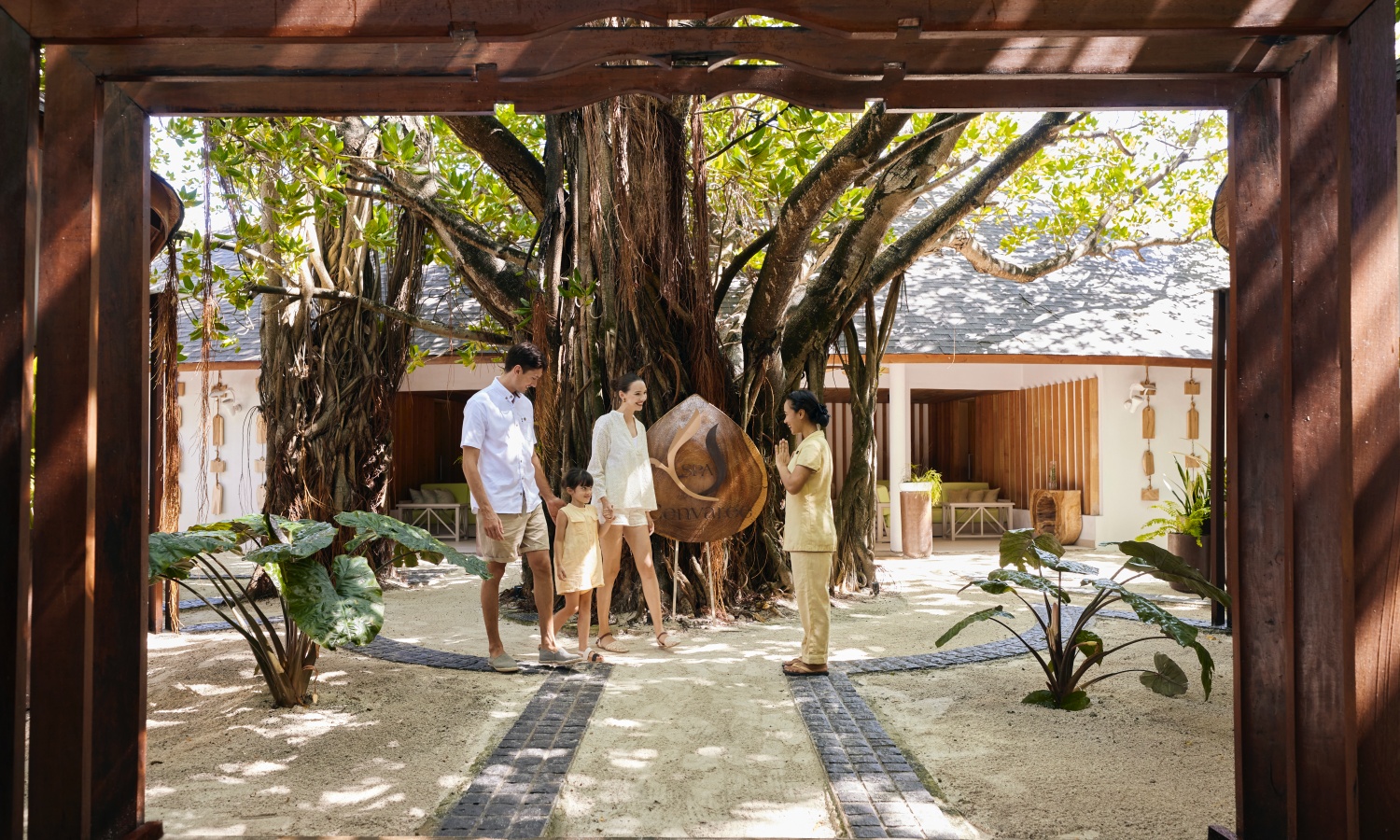
Machchafushi Island Resort & Spa, part of The Centara Collection, offers an island experience shaped by the rhythm of the ocean in the heart of South Ari Atoll. While the resort is widely recognised for its celebrated dive sites, award-winning house reef and rich marine life, another presence quietly anchors the spirit of the island.
Within the peaceful grounds of SPA Cenvaree stands a centuries-old banyan tree known locally as the Ummeedhu Tree, meaning Wish Fulfilment. With its expansive canopy and cascading aerial roots, the tree is regarded as more than a natural landmark. It is a symbol of continuity and reflection, standing as a silent witness to the island’s past and present.
Long before the island became a resort destination, the banyan tree stood rooted in the sands of Machchafushi. Today, the resort honours it as the spiritual heart of the island, inviting guests to pause beneath its branches and engage in moments of reflection and reconnection.
This connection is expressed through the Sacred Thread Ceremony, a contemplative ritual designed to offer guests a personal and meaningful experience. The ceremony begins with a quiet walk through the spa gardens, encouraging stillness and intention. Guests select a delicate golden leaf to represent a personal wish—whether for love, wellbeing, success, abundance or inner peace—and hold it alongside a wish card while visualising that intention fulfilled. The golden leaf is then tied to the banyan’s ancient branches, symbolising the offering of the wish to the tree’s enduring presence. The leaf remains there, carrying the quiet energy of the intention until the guest’s return.
Beyond the banyan, the island continues its natural rhythm. The surrounding waters form part of one of the Maldives’ most significant marine environments, known for year-round whale shark encounters and an extensive house reef that stretches beyond the shoreline. Yet amid the movement of the sea and the vibrancy of coral life, it is often the stillness beneath the banyan tree that leaves the most lasting impression.
Sustainability and heritage are integral to life on Machchafushi Island. Located within the South Ari Marine Protected Area, the island is committed to safeguarding both its marine ecosystems and its cultural identity. The banyan tree stands as a reminder that preservation extends beyond the natural environment to include traditions, stories and the deeper connections between people and place.
At Machchafushi Island Resort & Spa, each day unfolds with moments shaped by nature and intention. From golden sunrises over the lagoon to wishes entrusted to ancient branches, experiences on the island are designed not only to be remembered, but to take root.
Featured
City Iftar experience curated at JEN Maldives by Shangri-La

JEN Maldives by Shangri-La is welcoming the holy month of Ramadan with a series of Iftar evenings at Lime Restaurant, inviting guests to gather in the spirit of reflection, gratitude and togetherness.
Recognising Ramadan as a time that brings families, friends and communities closer, the hotel has curated an Iftar experience designed to go beyond dining. The focus is on creating a welcoming environment where traditions are observed, conversations unfold naturally and shared moments are celebrated around the table.
Located in the heart of Malé, Lime Restaurant provides a warm and contemporary setting suited to a range of gatherings, from colleagues reconnecting after work to families and friends breaking fast together. Each evening reflects the generosity associated with Ramadan, featuring carefully prepared dishes, live cooking stations and a selection of sweet treats that balance traditional flavours with creative touches.
Iftar at JEN Maldives by Shangri-La is shaped by attentive service and thoughtful hospitality. Guests are welcomed into an atmosphere that blends comfort with understated elegance, allowing space for reflection while enjoying a relaxed dining experience. The hotel’s culinary and service teams work closely to ensure consistency, quality and authenticity throughout the season.
Whether for intimate gatherings or larger group celebrations, the venue offers flexibility supported by a culinary programme rooted in care and attention to detail. The Ramadan offering is designed to ensure guests feel at ease while enjoying a distinctive Iftar experience in the capital.
Throughout the holy month, JEN Maldives by Shangri-La invites guests to come together at Lime Restaurant to experience evenings defined by flavour, generosity and meaningful connection, in keeping with the true spirit of Ramadan.
Drink
Provence comes to Maldives with Château Minuty dinner at Milaidhoo Maldives
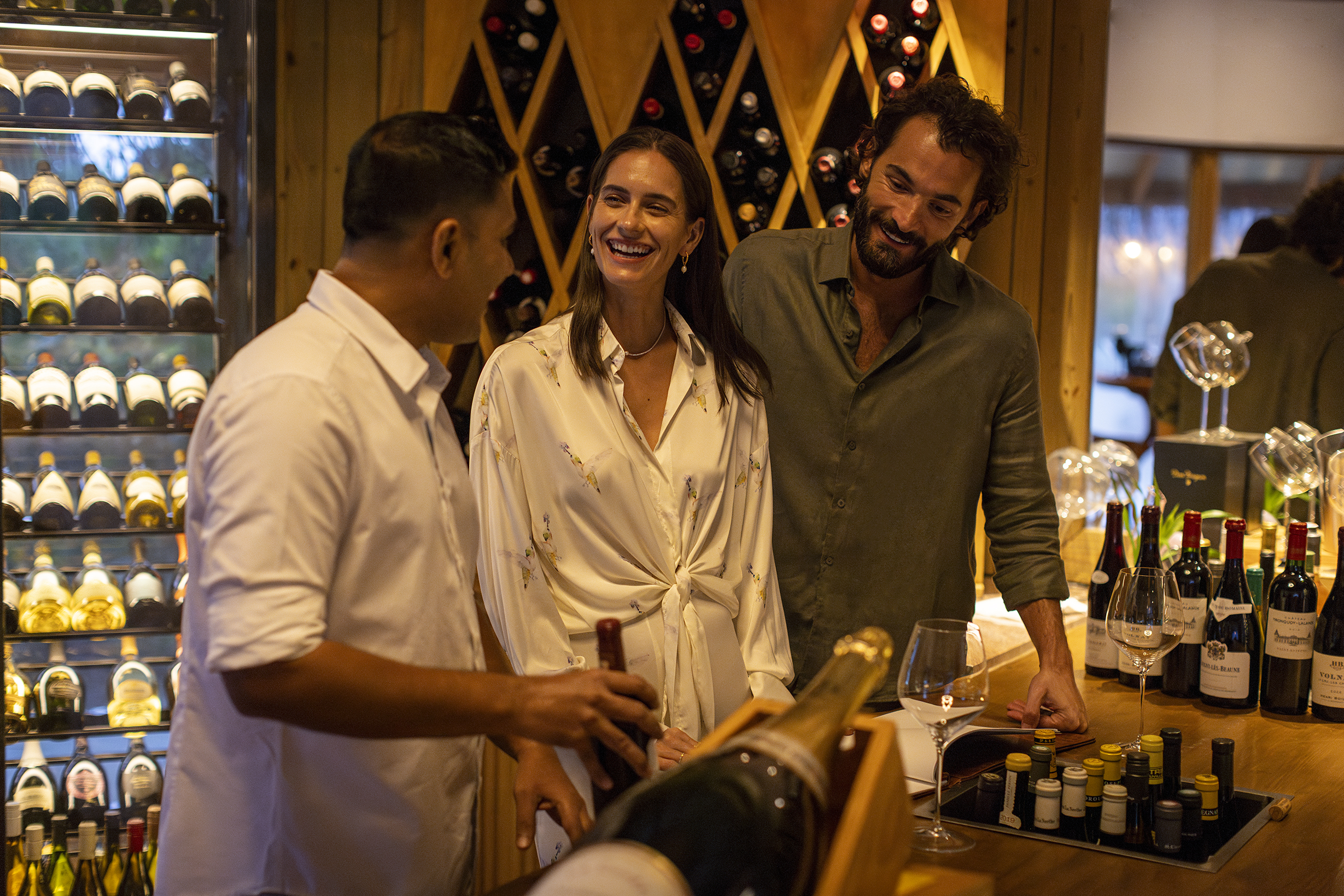
Milaidhoo Maldives is hosting a wine pairing dinner celebrating Provençal elegance and gastronomy on 4 March 2026 at the resort’s Shoreline Grill. The evening will feature wines from Château Minuty and will be hosted by Sébastien Nore, Global Strategy and Export Director of Château Minuty, offering guests insight into the winery’s heritage and approach to fine winemaking.
Originally from Limousin, France, Nore brings extensive experience in the international beverage industry. His career includes roles with Kronenbourg Wineries and PepsiCo France, followed by senior leadership positions at Diageo and Baron Philippe de Rothschild. He has played a key role in expanding Château Minuty’s global presence and currently oversees the winery’s strategy, sales, communication and marketing, with a focus on innovation and the refined character of Provençal rosé.
During the dinner, guests will enjoy a curated selection of Château Minuty wines, paired with a bespoke menu created by the Shoreline Grill culinary team. The featured wines include:
- Château Minuty M de Minuty Rosé Magnum 1.5L – Artist Edition 2024
- Château Minuty Prestige Rosé 2024
- Château Minuty Rosé et Or 2024
- Château Minuty 281 2024
Beyond this event, the dinner reflects Milaidhoo Maldives’ wider commitment to gastronomy. The resort’s Gourmet Plan is designed for guests with a strong interest in food and wine, offering personalised, multi-course dining experiences throughout their stay. Each menu is crafted to highlight the relationship between carefully selected ingredients and complementary wines, with an emphasis on authenticity and balance.
The Château Minuty dinner marks the fourth wine-focused event hosted by Milaidhoo Maldives this year, underscoring the resort’s ongoing focus on curated culinary experiences. The evening is positioned as a sensory journey, combining refined flavours, thoughtful pairings and a convivial island setting.
-
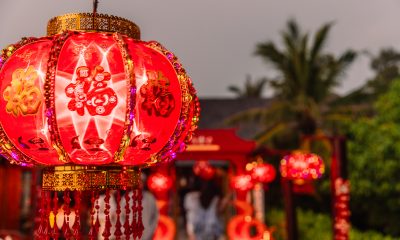
 Featured1 week ago
Featured1 week agoYear of the Horse celebrations across Sun Siyam’s Luxury, Privé and Lifestyle resorts
-
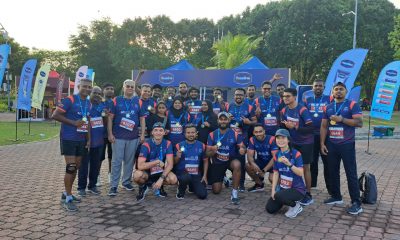
 Action7 days ago
Action7 days agoBestbuy Maldives supports health, wellness as Main Sponsor of MNU Marathon 2026
-

 Awards1 week ago
Awards1 week agoEllaidhoo Maldives secures HolidayCheck Gold Award for second consecutive year
-

 Cooking7 days ago
Cooking7 days agoMaagiri Hotel invites guests to celebrate Ramadan with daily Iftar
-
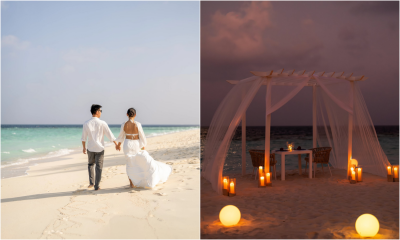
 Love7 days ago
Love7 days agoRomance in nature: Valentine’s week at Eri Maldives
-
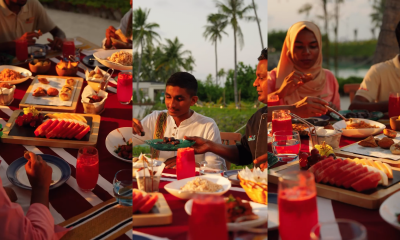
 Food1 week ago
Food1 week agoOBLU XPERIENCE Ailafushi invites guests to break fast island-style this Ramadan
-
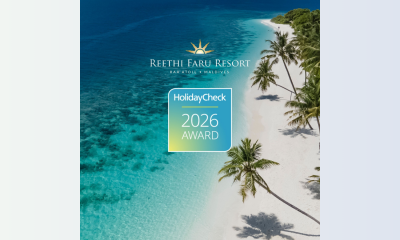
 Awards1 week ago
Awards1 week agoReethi Faru Resort recognised with HolidayCheck Award 2026
-
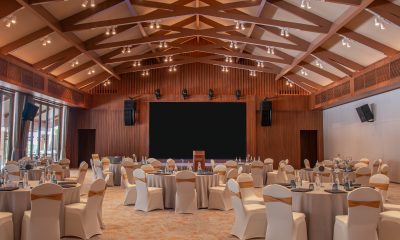
 Business5 days ago
Business5 days agoFeydhoo Hall opens at dusitD2 Feydhoo Maldives as new event space








